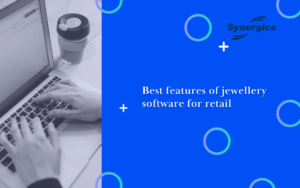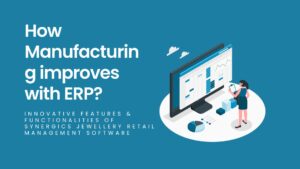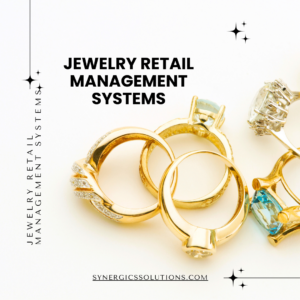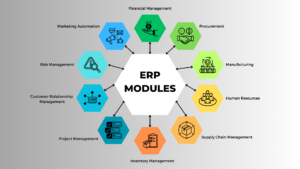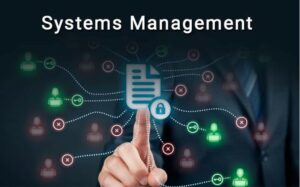Implementing an ERP (Enterprise Resource Planning) system for a jewellery wholesale business is a transformative step that streamlines operations, enhances customer satisfaction, and drives growth. Whether you’re transitioning from traditional management methods or upgrading your existing jewellery software, the process requires meticulous planning and execution. Here are ten critical steps to implement ERP software specifically designed for the jewellery wholesale business.

1. Define Your Requirements
Before exploring ERP for jewellery business options, it’s crucial to understand your specific needs. Identify the challenges you’re facing with order management, inventory tracking, customer relations, and financial reporting. A clear understanding of your requirements will help you find jewellery wholesale software that fits your business perfectly.
2. Research and Select the Right ERP Software
With a plethora of ERP solutions available, choosing the right jewellery software can be daunting. Look for ERP for jewellery wholesale business that offers modules for inventory management, customer relationship management (CRM), sales and marketing, finance, and analytics. Prioritize solutions that are customizable and scalable to grow with your business.
3. Plan Your Implementation Strategy
Successful ERP implementation requires a well-thought-out strategy. Create a project plan that outlines the scope, timeline, budget, and resources needed. Ensure there’s a clear communication plan to keep all stakeholders informed and engaged throughout the process.
4. Assemble Your Implementation Team
Select a cross-functional team that includes members from IT, finance, sales, and operations. This team will be responsible for managing the implementation process, training staff, and ensuring the system meets the business’s needs.
5. Data Migration and System Integration
Migrating data from your old system to the new ERP software is one of the most critical steps. Ensure the data is clean, organized, and compatible with the new system. Additionally, consider how the ERP will integrate with other tools and systems you use, such as e-commerce platforms and payment processors.
6. Customize and Configure
Even the best jewellery wholesale software may not be a perfect fit right out of the box. Work with your vendor to customize and configure the ERP to meet your specific business processes and requirements. This might include setting up custom workflows, user roles, and access controls.
7. Comprehensive Testing
Before going live, it’s essential to test the ERP system thoroughly. Conduct tests to ensure that all features work as expected and that the system can handle real-life scenarios. Testing should cover workflows, data integrity, system performance, and security.
8. Staff Training and Support
The success of your ERP implementation heavily relies on user adoption. Invest in comprehensive training for your staff to ensure they are comfortable and proficient with the new system. Provide ongoing support to address any questions or challenges that arise.
9. Go Live
After thorough testing and training, it’s time to go live. Consider a phased approach, starting with less critical operations before fully transitioning to the new system. This allows you to manage any issues on a smaller scale without disrupting the entire business.
10. Monitor, Evaluate, and Optimize
The implementation of ERP for jewellery business doesn’t end with going live. Continuously monitor the system’s performance, gather user feedback, and evaluate how well the ERP meets your business objectives. Be prepared to make adjustments and optimizations to ensure the system continues to support your business effectively.
Conclusion
Implementing an ERP for jewellery wholesale business is a significant investment in time and resources, but the payoff in efficiency, accuracy, and growth potential is well worth it. By following these ten steps, you can ensure a smooth transition to a comprehensive jewellery software solution that supports every aspect of your wholesale order management. Remember, the goal is not just to implement an ERP system but to transform your business processes for maximum efficiency and success.
FAQ’s
1. What is ERP software for jewellery businesses, and how does it benefit me?
ERP (Enterprise Resource Planning) software for jewellery businesses is a comprehensive solution designed to streamline and integrate all facets of your jewellery wholesale operations, from inventory management and order processing to customer relationship management and financial accounting. This type of jewellery software helps in optimizing operations, improving decision-making through real-time data, enhancing customer satisfaction, and ultimately increasing profitability by automating and organizing key business processes efficiently.
2. Can ERP for jewellery wholesale business handle unique industry requirements, like managing precious metals and gemstones inventory?
Yes, ERP systems tailored for the jewellery wholesale business are specifically designed to address the unique challenges of the industry. These systems can accurately manage and track inventory of precious metals and gemstones, including weight, carats, and quality. They also support the management of product variations, such as different sizes, designs, and materials, ensuring precise inventory control and valuation.
3. How does jewellery wholesale software integrate with online sales channels?
Jewellery wholesale software can seamlessly integrate with various online sales channels and e-commerce platforms, enabling you to manage your online and offline sales from a single system. This integration facilitates real-time inventory updates, order synchronization, and consistent customer data across all channels, improving operational efficiency and providing a unified customer experience.
4. Is training provided for new users of the ERP system, and what does it entail?
Yes, training is an essential part of implementing an ERP system for your jewellery business. Training programs are designed to ensure that all users, regardless of their technical expertise, can effectively use the system. Training typically includes hands-on sessions, instructional materials, and live demonstrations covering key functionalities, such as inventory management, order processing, customer management, and financial reporting. Ongoing support and advanced training sessions may also be available to address further needs and updates.
5. What kind of support can I expect after implementing the ERP system?
After implementing the ERP system, you can expect comprehensive support to ensure the software runs smoothly and continues to meet your business needs. This support usually includes access to a dedicated support team, troubleshooting and technical assistance, regular software updates, and security enhancements. Additionally, some providers offer access to user communities or forums where you can share experiences, solutions, and best practices with other users.


